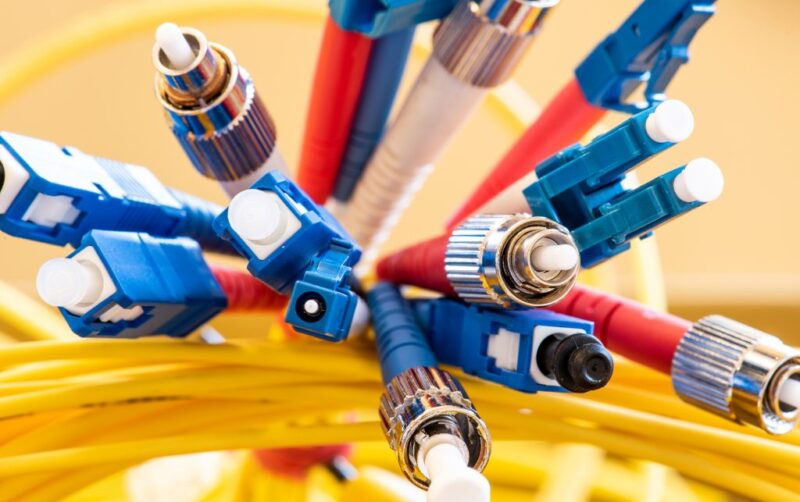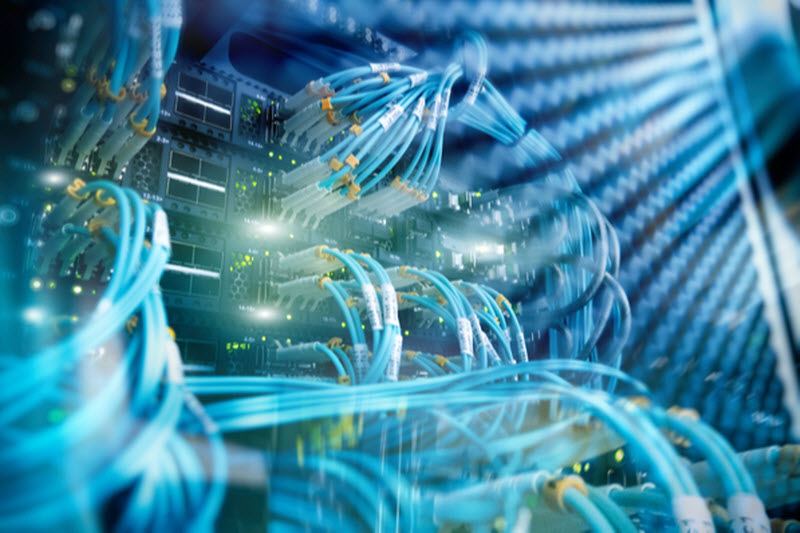If you are working or playing with cutting-edge technology, you probably know that there are two types of cable to choose from when setting up your devices- fibre and copper cable. Copper was king for a long time before upstart fibre optic technology came into play. Both types have their rightful place in the scheme of things, each with its own set of unique characteristics and advantages. There really isn’t a right or wrong answer to which is better, they are actually complimentary to each other under a lot of circumstances!

While precious bandwidth is in ever-increasing demand, the costs of fibre cable have been dramatically reduced, making it a much more accessible resource than it was previously. If you are considering whether to choose fibre or copper cabling for your project, let’s consider the advantages that fibre can provide to help you make a better-informed decision:
- Bandwidth – Fibre cable can support ultra-high levels of bandwidth, higher in fact than any other available technology currently can. Fibre optic cables can carry a lot more data than even the best copper cables of the same diameter are capable of handling.
- Latency – Have you ever been playing a computer game only to find your character beginning to slow down and even freeze in the middle of combat, and when the lag clears up you find it lying dead on the map? This frustrating problem is called latency, and its occurrence is greatly decreased when you are connecting to a game server with fibre cable. Fibre makes latency a thing of the past, giving you lightning-fast upload and download times while carrying your data across long distances without interruptions and delays.
- Security – Because of the fact that fibre cables don’t emit any signals, intercepting and stealing data from them is extremely difficult. The data travelling through a fibre cable is contained within the fibre strand, so the only way to access it is by actually cutting into it. That base act of villainy is likely to bring the entire network down and send the authorities looking for the source of the problem!
- Safety – Copper cables send data with an electric charge making it dangerous to handle when live, whereas fibre cables transfer data via harmless light!
- Resistant – Fibre cable is highly resistant to fluctuations of temperature, and the weather. Contact with rainwater does nothing to harm it and even a direct hit by a lightning strike won’t be propagated because the cable is made of glass instead of conductive metal. This invulnerability to the elements makes fibre cables ideal for long-distance outdoor and industrial use.
- EMI Immune – EMI, which stands for “electromagnetic interference” is an ever-present danger in today’s increasingly electricity-powered, technology-reliant world. Fibre is Immune to EMI and will continue to transmit data even if it’s within the range of an EMI disturbance.

The Australian Signal’s Directorate has published a set of standards for cable technology, check here for more information. We hope that this article has been helpful and given you a greater understanding of the benefits fibre cables can provide.






